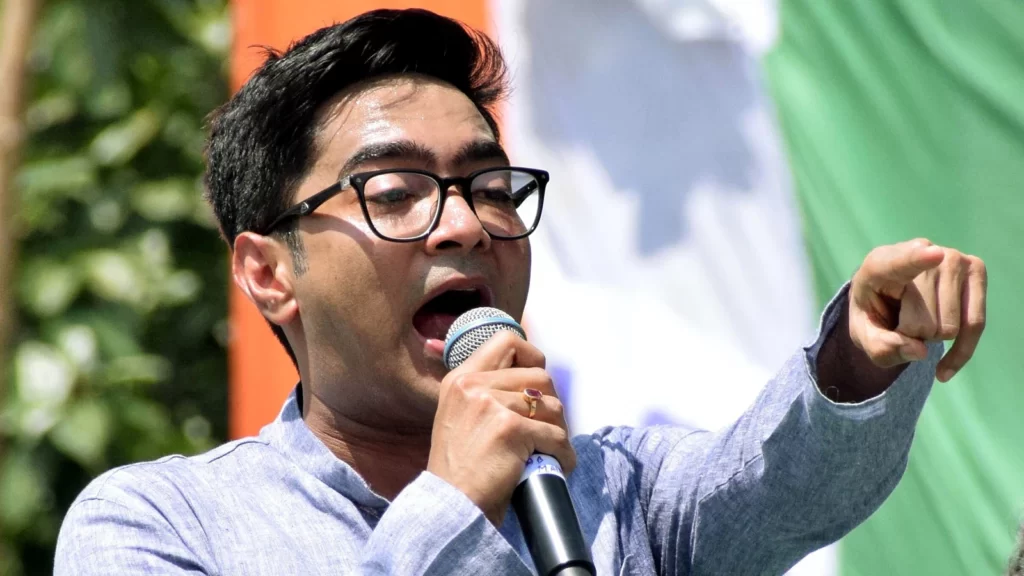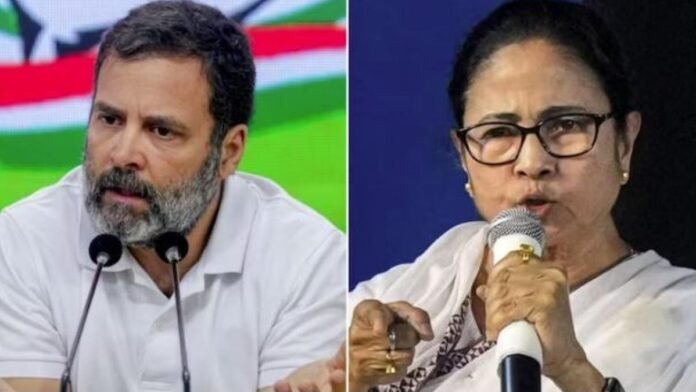The recent comments by West Bengal Chief Minister Mamata Banerjee have once again stirred the pot of electoral dynamics. With her fresh salvo directed at ally Congress, predicting their performance for the upcoming 2024 elections, Banerjee’s remarks underscore the complexities and uncertainties that characterize Indian politics.
Banerjee’s blunt assertion that Congress, her ally in the fight against the Bharatiya Janata Party (BJP), won’t even win 40 seats in the 2024 elections has sent shockwaves through the political fraternity. The statement, delivered with characteristic candor, highlights the strained relations between the Trinamool Congress (TMC) and Congress, despite their tactical alliances in select electoral battles.
The political landscape in India is marked by shifting alliances and realignments, driven by strategic considerations and electoral imperatives. In this dynamic milieu, Banerjee’s prognosis for Congress’s electoral fortunes reflects not only the underlying tensions within the opposition camp but also her own aspirations for a leadership role on the national stage.
The strained relationship between TMC and Congress is rooted in both ideological differences and political calculations. While both parties share a common goal of countering the BJP’s hegemony, their divergent regional interests and electoral strategies often clash, leading to friction and discord. Banerjee’s assertion that Congress’s electoral prospects are bleak may stem from a desire to assert TMC’s primacy within the opposition fold and position herself as a formidable challenger to the BJP.

Moreover, Banerjee’s prediction for Congress’s performance in the 2024 elections reflects broader disillusionment with the party’s leadership and electoral strategy. Despite being the principal opposition party at the national level, Congress has faced a series of electoral setbacks in recent years, losing ground to regional players and struggling to articulate a coherent alternative narrative to the BJP’s dominance.
The challenges facing Congress are multifaceted, ranging from leadership vacuum and organizational weaknesses to ideological drift and electoral miscalculations. The party’s inability to present a united front and mobilize support across diverse socio-political constituencies has eroded its credibility and electoral appeal, making it vulnerable to criticism from both allies and adversaries.
Banerjee’s candid assessment of Congress’s electoral prospects is also indicative of her own ambitions to play a pivotal role in shaping the contours of national politics. As the chief architect of TMC’s resounding victory in West Bengal and a vocal critic of the BJP’s policies, Banerjee has emerged as a formidable leader with a pan-Indian appeal. Her assertion that TMC will play a pivotal role in the 2024 elections reflects her confidence in her party’s ability to mobilize support and emerge as a credible alternative to the BJP.
However, Banerjee’s prediction for Congress’s performance in the 2024 elections should be viewed in the context of the fluid and unpredictable nature of Indian politics. While her remarks may reflect prevailing sentiments within certain sections of the political establishment, electoral outcomes are inherently uncertain and subject to multiple variables, including changing public mood, socio-economic dynamics, and electoral alliances.
Moreover, the political landscape is constantly evolving, with new players emerging and old alliances crumbling. The ability of political parties to adapt to changing circumstances, forge strategic alliances, and connect with voters will ultimately determine their electoral fortunes in the upcoming elections.
In a nutshell, Mamata Banerjee’s fresh salvo at ally Congress and her prediction for their performance in the 2024 elections underscore the complexities and uncertainties that define Indian politics. As parties gear up for the electoral battle ahead, strategic calculations, leadership dynamics, and ideological considerations will shape the contours of electoral alliances and rivalries. While Banerjee’s remarks may reflect prevailing sentiments within certain quarters, electoral outcomes remain inherently unpredictable, making it imperative for political parties to navigate the ever-changing political landscape with agility and foresight.

